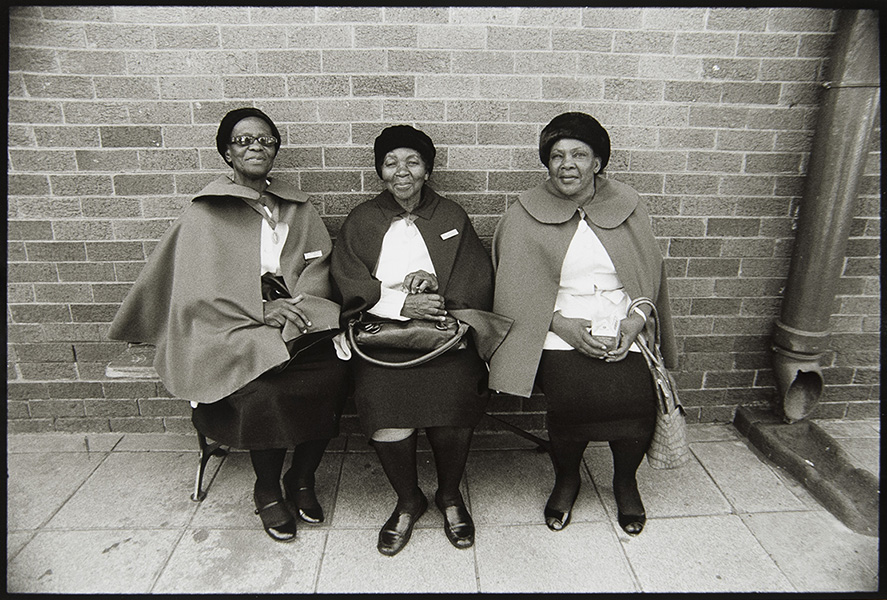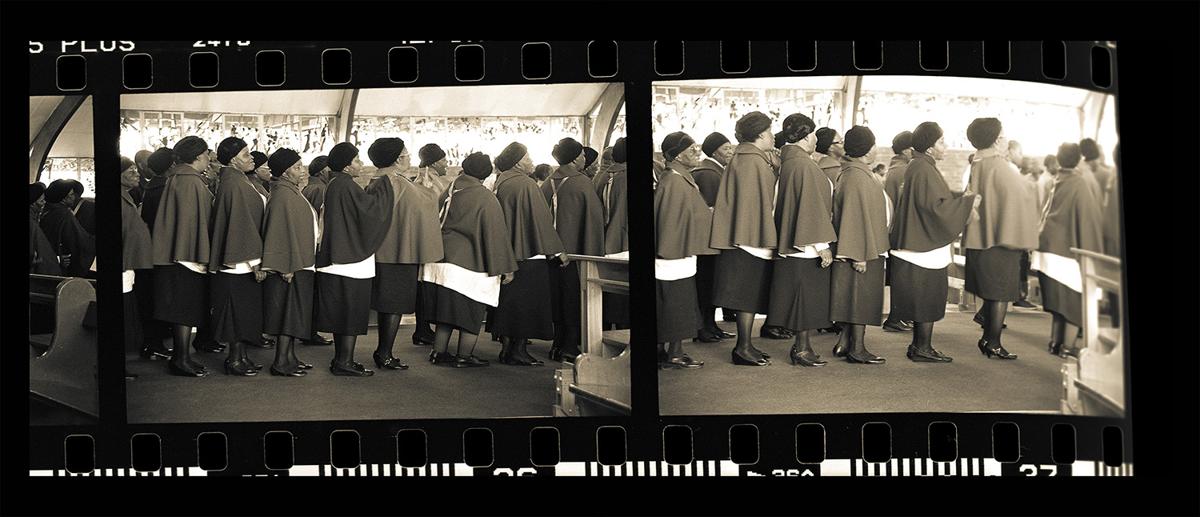March 28: Gaining Through Losing: The Promises of Simplicity
♫ Music:
Day 32 - Saturday, March 28
Rung #24: ON SIMPLICITY & GUILELESSNESS
Scriptures: 2 Corinthians 1:12; I Timothy 6:6-8; 1 Thessalonians 4:11-13
For our boast is this, the testimony of our conscience, that we behaved in the world with simplicity and godly sincerity, not by earthly wisdom but by the grace of God, and supremely so toward you. Now there is great gain in godliness with contentment, for we brought nothing into the world, and we cannot take anything out of the world. But if we have food and clothing, with these we will be content. Aspire to live quietly, and to mind your own affairs, and to work with your hands, as we instructed you, so that you may walk properly before outsiders and be dependent on no one.
Poetry:
How Quiet
by Judith Harris
How quiet is the spruce,
the wind twills
through the uppermost tier
of splayed leaves.
Now the song of a bird
like the squeaky lock
over a canoe's oar,
followed by startling chirps,
the sky pushing its clouds
like sailboats,
and I think, what kind of God
keeps himself secret
so that to find him out
we have to seek, as children do
for something like the beetle
scuttling between grass,
hidden in plain sight.
GAINING THROUGH LOSING: THE PROMISES OF SIMPLICITY
Asceticism is most frequently understood in light of what we give up. Solitude is the loss of companions. Fasting is the forsaking of food. Poverty is the lack of those material goods that bring us joy and comfort. Even prayer can be experienced as a loss. We lose productive time by being engaged in what can often feel like a static – sometimes pointless – exercise.
And yet, these very things are what an incredibly loving God calls His children to participate in. How can that be? Does God want us to live in isolation, discomfort and misery all of our lives? Certainly, many ascetics of the past have understood it so.
Perhaps we find ascetic practices so hard because we only notice what we lose and fail to comprehend all that we gain. You see, in casting other things aside through ascetic practices, we are brought to a place of simplicity, a place where we can finally focus on the one thing that is all that really matters – God Himself.
The presence of God is, like Judith Harris’ beetle, hidden in plain sight. We find Him not by diligent struggle but through the clarity of vision that simplicity gives. He is seen through a glass dimly, but the light can indeed be seen, especially when all other lights – those things that compete for our attention – are extinguished.
Simplicity also helps us to number our days and forces us to confront the illusions of self-importance that we are so prone to erect. When we, like the Queens of Soweto, cease trying to be someone of note, we are then positioned to live a meaningful life. We discover that choosing to live quietly and to work faithfully is what leads to contentment and pleases God. And this is what makes life truly meaningful.
In the process, we discover in this upside-down Kingdom of God that the ones God sees as great are those whom the world so readily dismisses as unimportant. Again, like the beetle, greatness in God’s kingdom is hidden in plain sight. It is found in simplicity, godly contentment, and a heart that treasures Him above all else.
Ascetic practices do not earn us favor with God. They transform us so that we may see the God who is always with us with greater clarity than ever before. In seeing Him, we can finally rightly see ourselves and we can be honest with ourselves about who we are. In this place, we find complete love and acceptance by God and the ability to extend that same love and acceptance to others. In this way, solitude and simplicity allow us to engage with the people around us more completely and more honestly.
Simplicity and the guilelessness that is its fruit allow us to be more authentic with ourselves and develop deeper relationships with God and others. That’s worth missing a few television shows and perhaps a meal or two.
Prayer:
Dear Lord-
There is a simplicity that comes from following you that removes the false importance from so many things in life. In this season of refocusing, please show me the things that clutter my life and keep me from simplicity. I know that you have called us to live quiet lives of devotion – lives of guilelessness and simple service. Help me to know you and to love others in a way that honors you. Work in me to cast aside the detritus of life and, as a result, live more fully.
Amen
Kevin Grenier
Development Director
Development Associates International (DAI)
Colorado Springs, Colorado
For more information about the artwork, music, poetry, and devotional writer selected for this day, we have provided resources under the “About” tab located next to the “Devotional” tab. To learn more about the themes of this year’s Lent Project, please go to:
https://ccca.biola.edu/lent/2020/#day-feb-25
About the Artwork #1:
The Queens of Soweto
Keith A. Barker
2013
Toned silver gelatin print
19” x 12”
Photographer Keith Barker describes his photo, “These muses, these South African ‘daughters of memory’— chatted in the shade on a bench after they had just served the sacraments during Sunday morning mass in the Regina Mundi Catholic Church in Rockville, Soweto. The conflicts and horrors endured by this “Queen of the World” church are marked in the walls and windows, as well as in the people and their memories. However, the faces and hands of these women show no conflict, though they hint at much experience and personality. My interaction with them supported that. With dignity they await my recording that moment.”
About the Artwork #2:
Regina Mundi Church
Soweto, South Africa
Keith A. Barker
2013
Digital image excerpted from Somewhere Else (2013),
a book of photographs with an essay. 80 pages.
Barker describes this grouping of images, “This composite describes moments experienced while elders processed during mass at Regina Mundi Church in Soweto. It is part of a book made as an attempt to grapple with my experience in South Africa, while trying to be open to the complexities of its past, present and future.”
About the Artist:
Keith A. Barker’s photographic work centers around people, places and objects that relay a sense of history and time’s passage. Currently Professor and Art Department Chair at Asbury University, Barker has taught Photography and Graphic Design since 2000. He received a Bachelor of Arts in Studio Art from Asbury College (1991) and a Master of Fine Arts in Photography from Savannah College of Art and Design (2000). Barker enjoys splitting wood and playing outdoors with his family where they live in central Kentucky.
www.kbarkerphoto.com
About the Music:
“Wisdom and Grace” from the album Lamentations: Simple Songs of Lament and Hope, Vol. I
The Lyrics:
Teach us to number our days
That we may apply our hearts to Your ways
Teach us to number our days
with wisdom and grace.
You've been our home and our dwelling
our place in all generations.
Before the earth or the mountains were formed,
Lord, You were God.
Now the span of our lives,
It is made of sorrow and labor
As the days pass away like the grass
How soon we are gone.
O let the work of our hands,
set Your favor upon us.
O establish the word of our hands,
May Your kingdom come!
About the Composer/Lyricist:
Sandra McCracken’s (b. 1977) prolific contributions as a songwriter, modern-day hymn writer, and record producer have brought grace and clarity to her soulful, folk-gospel sound. Whether in a theater or in a chapel, she is a dynamic performer who blurs the lines of what church music sounds like by captivating and inviting audiences to sing along. While many of her songs like “We Will Feast In The House Of Zion” and “Thy Mercy My God” have settled into regular rotation in Christian worship services internationally, she has also had songs recorded by All Sons And Daughters, ABC’s Grey’s Anatomy, Audrey Assad, A Rocha Compilation, Bifrost Arts, Caedmon’s Call,l and others. She is a founding member of Indelible Grace Music and Rain For Roots (children’s music) and has been a guest writer for Art House America, She Reads Truth, The Gospel Coalition, Christianity Today, RELEVANT Magazine and many more.
http://www.sandramccracken.com/
About the Performers:
Bifrost Arts is an ecumenical organization closely linked to the Presbyterian Church in America that produces written and recorded religious music and frequently performs at Christian universities and conferences. Isaac Wardell founded Bifrost Arts in 2008 "to enrich the Church and engage the world with beauty and truth through music beautiful enough that non-Christians are attracted to it." Notable contributors to Bifrost Arts' recordings have included Joseph Pensak, Sufjan Stevens, David Bazan, Rosie Thomas, Leigh Nash, Damien Jurado, The Welcome Wagon, Derek Webb, Denison Witmer, Devon Sproule, Shara Worden, Laura Gibson, The Gregory Brothers, Lenny Smith, Mason Neely, J. Tillman, Trent Dabbs, Isaac Wardell, Diane Birch, and Sanders Bohlke.
https://en.wikipedia.org/wiki/Bifrost_Arts
About the Poet:
Judith Harris (b. 1955), an American poet, was born in Washington, DC, and earned her BA from the University of Maryland, an MA in Creative Writing from Brown University, and a PhD in American literature from George Washington University. She has taught at George Washington, Catholic University, George Mason University, and American University. Her collections of poetry include Night Garden (2013), The Bad Secret (2006), and Atonement (2000). Her highly acclaimed critical study Signifying Pain: Constructing and Healing the Self through Writing (2003) was published by SUNY Press and her essays have been published in many journals, including Tikkun, College English, The Washingtonian, and the Chronicle of Associated Writing Programs. Her poems have appeared in the Nation, Slate, Ploughshares, the New Republic, the Atlantic and Narrative Magazine, Southern Review, the American Scholar, Prairie Schooner and in Ted Kooser's American Life in Poetry series. She has been nominated for Pushcart prizes and is a recipient of grants from Carnegie Mellon and the DC Commission on the Arts. She lives and teaches in Washington DC.
https://www.poetryfoundation.org/poets/judith-harris
About the Devotion Writer:
Kevin Grenier
Development Director
Development Associates International (DAI)
Colorado Springs, CO
https://daintl.org/
Kevin Grenier is the Development Director for Development Associates International (DAI), a ministry providing training and consulting in leadership and organizational management to more than 50,000 Christian leaders annually in over 82 countries. The main focus of DAI is equipping those Christian leaders who have the least access to formal education. Kevin is a graduate of the United States Air Force Academy and Denver Seminary (M.Div.). He has served as a pastor, counselor, chaplain, and teacher. Kevin’s main ministry focus before DAI was in urban Denver working with homeless people.

